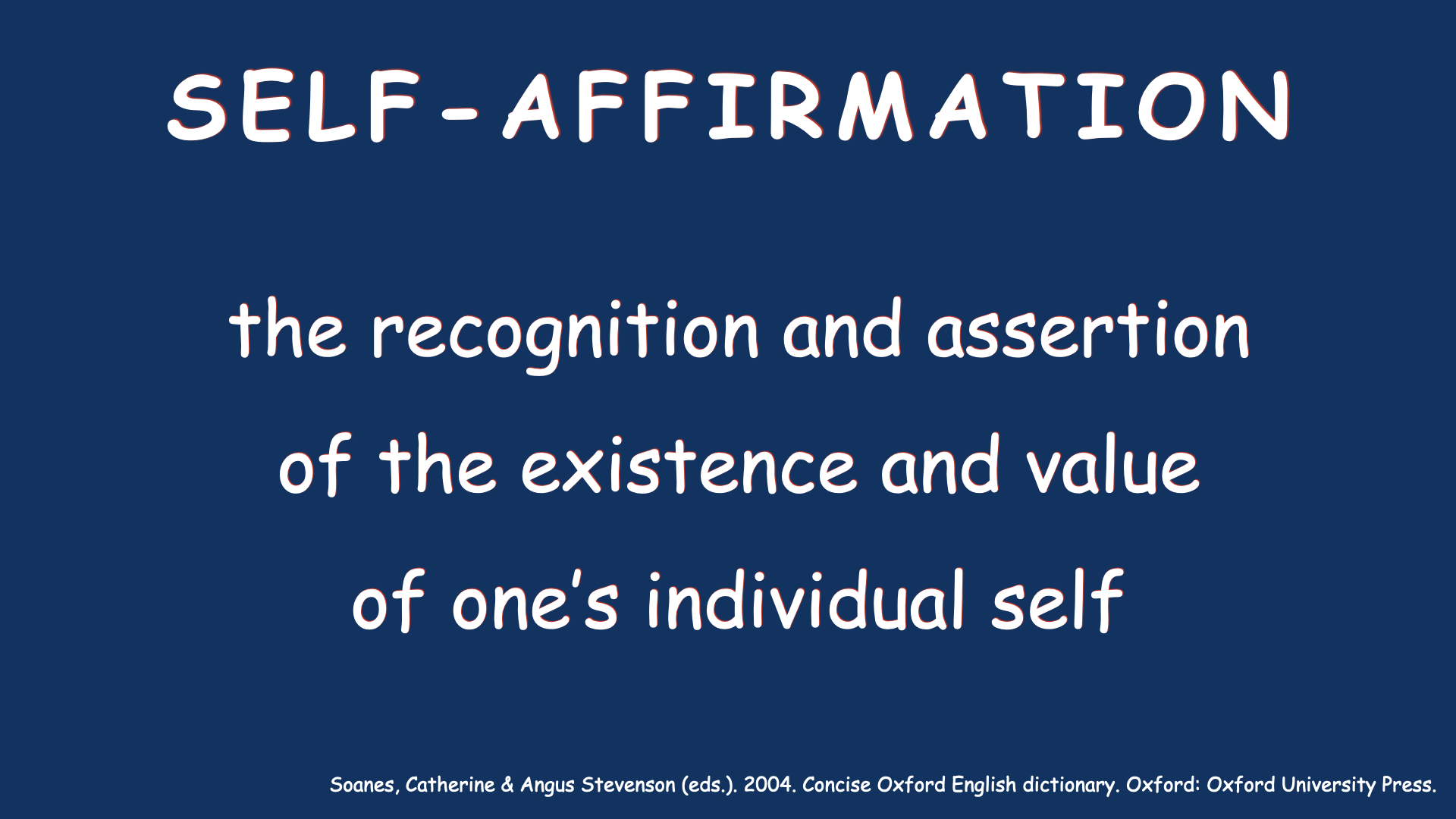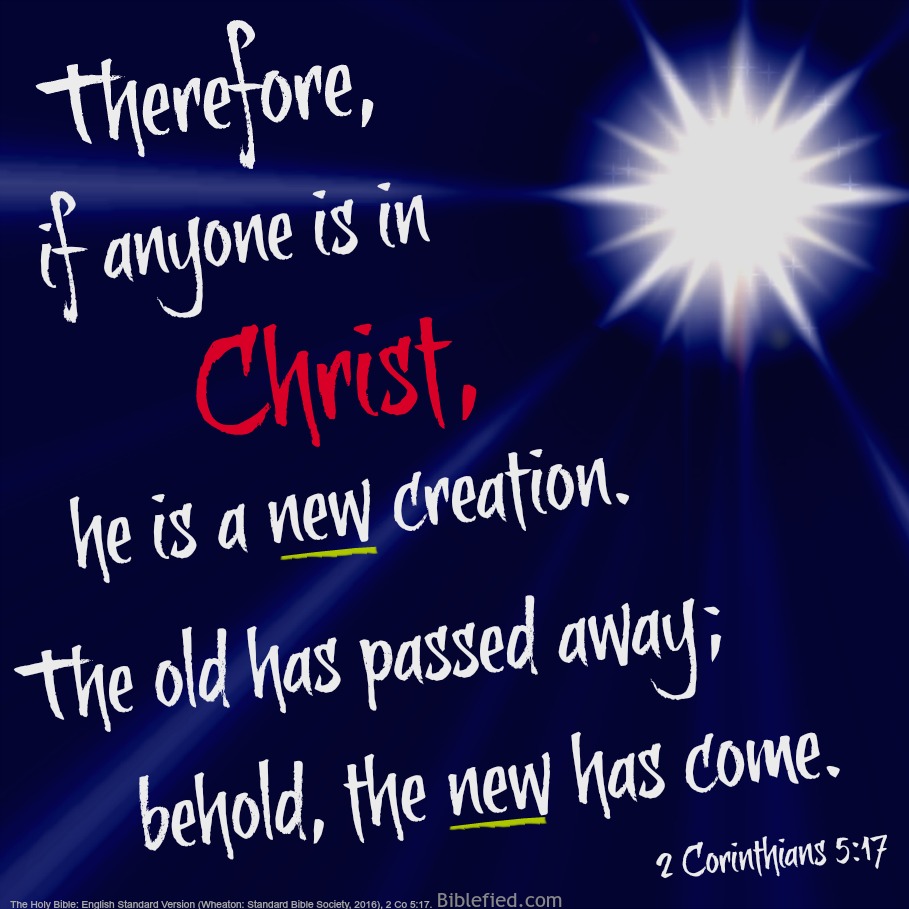|
|
Self-Affirmation Bible Study
This page provides you the answers for the Self-Affirmation Bible Study. It's the second of four lessons in the Who Am I Bible Study. We've provided the daily study questions for this study here. On this page we offer you the opportunity to compare your answers.
Day One - Self-Affirmation Bible Study

Let's explore the attitude Jesus had towards people as laid out by John Stott in his book The Cross of Christ. He calls us to consider three points on this topic:
- Jesus' teaching about people
- Jesus' attitude about people
- Jesus' mission and death for people
"The ultimate basis of our positive self-image must be
God's acceptance of us in Christ."
The Christian Looks at Himself by Anthony A. Hoekema
Question 1: What do we learn regarding Jesus' teachings about people from the following verses of Scripture:
- Matthew 6:26
- Matthew 12:12
Answer: Jesus states plainly that we are worth "far more" to God than the animals he created, specifically sheep and birds.
The basis for this judgement was "the doctrine of creation, which Jesus took over from the Old Testament, namely that human beings are the crown of God's creation activity and that he made man and woman in his own image."1
We can't simply read this and not reflect on the impact and magnitude of this to our understanding. Wayne Grudem helps illuminate this magnificent truth for us with this:
"It would be good for us to reflect on our likeness to God more often. It will probably amaze us to realize that when the Creator of the universe wanted to create something 'in his image,' something more like himself than all the rest of creation, he made us!
This realization will give us a profound sense of dignity and significance as we reflect on the excellence of God's creation: The starry universe, the abundant earth, the world of plants and animals, and the angelic kingdoms are remarkable, even magnificent.
But we are more like our Creator than any of these things. We are the culmination of God's infinitely wise and skillful work of creation. Even though sin has greatly marred that likeness, we nonetheless now reflect much of it, and shall even more as we grow in likeness to Christ.
Yet we must remember that even fallen, sinful man has the status of being in God's image. Every single human being, no matter how much the image of God is marred by sin, or illness, or weakness, or age, or any other disability, still has the status of being in God's image and therefore must be treated with dignity and respect that is due to God's image-bearer."2
Question 2: What can we see from the following verses about Jesus' attitude towards people who were marginalized by society in his day?
Answer:
- Mark 10:13-16
Jesus had compassion and acted kindly towards the children. Infant mortality was unfortunately common in this era. More than half died before their sixteen birthday.
The picture in this passage of Scripture is likely one of peasant women, whose babies would likely die before their first birthday, pleading with Jesus to touch their children.
These women were hopeful that Jesus' touch could prevent them from an early death and prevent them from evil.3
- Mark 14:3-9
First, Jesus was at the house of Simon. He was a leper! He was an outcast and nobody would think to even get near him. But Jesus wasn't a nobody.
Secondly, he defended a woman (typically not done) who had anointed him and proclaimed her worthy of the discussion we are still having today about her.
Day Two - Self-Affirmation Bible Study

Question 1: Perhaps the greatest example of the attitude of Jesus towards people is seen in the following verses. From the following verses, how would you characterize the value of people to Jesus?
John 10:7-18:
Jesus explains:
- from verse 9 that he's the people's savior who provides peace (the sheep go in and out) and the provider (the sheep find pasture)
- from verse 10 that he came so we could have an abundant life
- from verses 11, 15 and 17 that he lays down his life for us
- from verse 12 that he owns us (unlike the hired hand)
- from verse 13 that he cares about us
- from verse 16 that he cares for all people
- from verse 18 that he lays down his life for us willingly
Matthew 20:28:
Jesus could have chosen to be served, but he didn't. Instead he came to serve his Father and us by giving his life to ransom us from Satan's grip.
These verses show us that Jesus valued people so much he gave his life for them - for you! Jesus couldn't provide a more clear sign of how much he loves people. His example of self-denial and self-sacrifice is the most perfect demonstration the world will ever see.
Question 2: How does a clear understanding of the value of people from a godly perspective help your attitude towards people to whom you wouldn't otherwise be gracious?
One man's answer:
If Jesus can forgive the most aggravating sinner, and more importantly, if Jesus died for them; then surely I can be gracious to someone who needs me to demonstrate the love of God in my life. Maybe it will help them be gracious too.
Day Three - Self-Affirmation Bible Study
How Can We Both Deny and Affirm Ourselves?
John Stott's book The Cross of Christ addresses this for us. Here's an excerpt:
"How is it possible to value ourselves and to deny ourselves simultaneously?
This question arises because we discuss and develop alternative attitudes to ourselves before we have defined the 'self' we are talking about. Our 'self' is not a simple entity that is either wholly good or wholly evil and therefore to be either totally valued or totally denied. Instead, our self is a complex entity of good and evil, glory and shame, which on that account requires that we develop more subtle attitudes to ourselves.
What we are (our self or personal identity) is partly the result of the creation (the image of God) and partly the result of the Fall (the image defaced). The self we are to deny, disown and crucify is our fallen self, everything within us that is incompatible with Jesus Christ (hence his commands 'let him deny himself' and then 'let him follow me'). The self we are to affirm and value is our created self, everything within us that is compatible with Jesus Christ (hence his statement that if we lose ourselves by self-denial we will find ourselves). True self-denial (the denial of our false, fallen self) is not the road to self-destruction but the road to self-discovery." 4
Question 1: What in your life you must deny?
Question 2: What in your life you must affirm?
Here's an answer to both questions from The Cross of Christ.5 The list below breaks this down for you:
AFFIRM OUR:

- rationality
- family life
- sense of moral obligation
- sexuality (whether masculinity or femininity)
- gifts of aesthetic appreciation and artistic creativity
- stewardship of the fruitful earth
- hunger for love and experience of community
- awareness of the transcendent majesty of God
- inbuilt urge to fall down and worship him
DENY OR REPUDIATE OUR:
- irrationality
- moral perversity
- blurring of sexual distinctives and lack of sexual self-control
- selfishness that spoils our family life
- fascination with the ugly
- lazy refusal to develop God’s gifts
- polluting and spoiling of the environment
- antisocial tendencies that inhibit true community
- proud autonomy
- idolatrous refusal to worship the living and true God
Day Four - Self-Affirmation Bible Study
To move beyond the contrast between what we need to deny and affirm about ourselves in this self-affirmation Bible study, we need to advance our understanding a bit more. As Christians, we have the ability to add the wonderful perspective that human beings aren't just created and then they're subsequently fallen.
With the great love that God showed us through his son Jesus Christ, we can say that yes, we were created; and yes, we are fallen, but we have been redeemed!
This now gives us more to affirm and more to deny.4
More to Affirm
Question 1: In light of this and the following verses what are we to affirm and how has your self-image changed?
- Ephesians 4:22-24
- Colossians 3:9-10
- II Corinthians 5:17
Answer:
As these verses show, redeemed Christians have a new self-image that is renewed in the spirit of their minds (Ephesians 4:23) with renewed knowledge according to the image of the Creator (Colossians 3:10). In fact, we affirm that we are indeed a new creation in Christ (II Corinthians 5:17).
More to Deny
Jesus Christ emptied himself of his glory according to Philippians 2:6. We know Jesus was without sin (Hebrews 4:15) yet this Scripture in Philippians is an example of Jesus denying himself.
That is, he didn't cling to his privileged status. And because he and his father were one (John 10:30), he did the will of God the Father and gave his life as a ransom for many (Matthew 20:28).
Addressing this concept of Jesus emptying himself, Philippians 2:5 tells us that we Christians should have this same attitude as Jesus Christ.
Question 2: How can we empty ourselves or deny ourselves and do the will of our father?
Or, how can you deny yourself something that's yours by right, like Jesus did, so you can accomplish something according to God's will for your life?
Answer:
One man's answer: The life of a missionary seems to be a perfect example, but other examples aren't so obvious. A simple choice to serve in a ministry event as opposed to the acceptance of an invitation to enjoy a social function is another example. Or perhaps you will choose not to enjoy a glass of wine if you were to dine with an alcoholic. All of these examples are based on decisions and call for one to choose to deny him or herself.

Day Five - Self-Affirmation Bible Study
As we close this Self-Affirmation Bible Study, an excerpt from The Cross of Christ allows us to see the application of the concept of self-affirmation:
"There is . . . a great need for discernment in our self-understanding. Who am I? What is my 'self'?
The answer is that I am a Jekyll and Hyde, a mixedup kid, having both dignity because I was created and have been re-created in the image of God, and depravity because I still have a fallen and rebellious nature.
I am both noble and ignoble, beautiful and ugly, good and bad, upright and twisted, image and child of God, and yet sometimes yielding obsequious homage to the devil from whose clutches Christ has rescued me.
My true self is what I am by creation, which Christ came to redeem, and by calling. My false self is what I am by the Fall, which Christ came to destroy.
Only when we have discerned which is which within us will we know what attitude to adopt toward each. We must be true to our true self and false to our false self.
We must be fearless in affirming all that we are by creation, redemption and calling, and ruthless in disowning all that we are by the Fall. Moreover, the cross of Christ teaches us both attitudes.
On the one hand, the cross is the God-given measure of the value of our true self, since Christ loved us and died for us. On the other hand, it is the God-given model for the denial of our false self, since we are to nail it to the cross and so put it to death.
Or, more simply, standing before the cross we see simultaneously our worth and our unworthiness, since we perceive both the greatness of his love in dying, and the greatness of our sin in causing him to die." 5

Question:
What's more difficult for you to do?
Is it easier to deny yourself and affirm who you are in Christ, or to serve yourself and enjoy the "pleasures" of sin?
Are there any Scriptures that help you to have the mind of Christ (Philippians 2:5) so you can make the proper choices?
One man's answer:
It's different every day, or an everyday struggle. However, it's easier to resist when we partner with fellow Christians and pray. Verse 11 of Psalm 119 helps to strengthen my walk as shown in the graphic on the right.
We pray this Self- Affirmation Bible Study has blessed you and brings glory to God.
Please know that as an Amazon Associate we earn from qualifying purchases linked on this site.
|
3 Garland, David, E. Mark. 2002. Zondervan Illustrated Bible Backgrounds Commentary. Grand Rapids, MI: Zondervan. p. 264. |
 |
4 Stott, p. 275.
5 Ibid.

